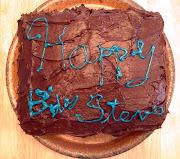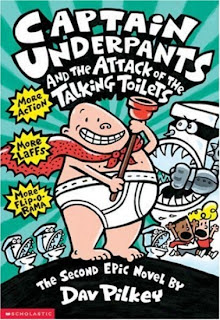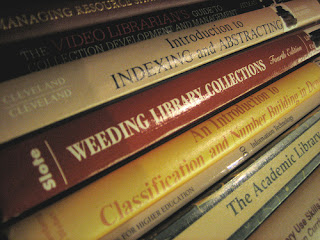The
ALA puts out a "Top Ten Banned Book" list every year to represent the most challenged books in school and public libraries across the U.S. Though I am against censorship, like any decent librarian, I can sympathize with parents or other library users on why they may be offended by a handful of books that make it to that list. Of course, I would never sympathize enough to take them off the shelf but I do see why people would want to have their kids avoid some of these titles, especially until they are the appropriate age to read them.
But a few of the titles that make it onto the Top Ten Banned Book list are truly baffling for me to understand where the offense lies. For example, did you know that
the following books have been challenged in a public and/or school library collection?:
1.
Bridge to Terrabithia
Okay - so this is certainly a boring and heavy handed book that few kids can even enjoy. But offensive content? Do you want to guess why it was banned? It's has been seen as "paganism" in reference to the imaginary world that Jess and Leslie create.
2.
To Kill a Mockingbird, Adventures of Huckleberry Finn, Roll of Thunder Hear My Cry, etc
Indeed these are the "racist" books. Too many "n-" words to be decent reading. Of course, these are for the most part canonized school reading fare but challenged nonetheless.
3.
Captain Underpants
Stupid - even intellectually offensive but to be censored from a collection based on it's potty humor? Truly...
4. Lord of the Rings, A Wrinkle in Time, Harry Potter
Yep. These are in the "occult" challenge category.
I always found this fantasy/"occult" category to be among the most disconcerting and even baffling of challenges. Okay, so you are looking for an excuse not to have to read "Bridge to Terrabithia" - fair enough. Okay so you aren't keen on exposing yourself to the uncomfortable realities of racism. Okay so you think potty-humor is offensive in its own right - but to basically rule out the fantasy genre because of your backwards sense of imagination v. religion? This is hard to wrap my mind around. Surely this doesn't happen - and if it does, it is in a land far from me.
But this last week I feel as if I have been officially christened into professional public librarianship. While placing a hold on
Fablehaven (a fantasy series by a BYU grad Mormon) for a customer, I made a passing remark how this was a fun series. She asked me what it was about. I began explaining it was sort of like
Lion, Witch and the Wardrobe meets
Harry Potter. Kids get thrown into an alternate universe while visiting their grandparents where they have adventures with magical creatures, etc. "Oh really? Maybe we shouldn't get that afterall. I don't want him reading that kind of stuff."
I then attempted probe her a bit, as a chance to turn this into a "reader's advisory" moment, assuming that she thought the book might be too much fluff or something. Perhaps I could find a happy medium for her agenda and her young son's taste...
"What kinds of things would you like him to read? Maybe we could find a good series that would have the escapism and fantasy in it that he would like but would suit more what you are interested in him reading."
Diplomatic enough right?
"Well, we just don't believe in that kind of stuff. We don't read Harry Potter and those types of books that have magic and satanic stuff in it like that."
?....Wasn't sure how to respond to that immediately. I couldn't help but pause briefly to ponder how we lept from magic to "satanic stuff" in reference to Harry Potter. When I came to, I tried to play up the
Lion, Witch and the Wardrobe thing, thinking that no one can accuse CS Lewis of being satanic. In the end, she decided that she would read the book before deciding whether it was appropriate for her son.
Though I got the feeling that she left feeling satisfied with our interaction, I was a bit rattled. Could it be that here in Colorado there are library going folk that would find as much issue with their kid reading HP as they would in having them play a Ouiji board? I can't help but think living in a world where fantasy is not only taken seriously but challenged on religious grounds would prove to be an exhausting lifestyle after awhile. In spite of how unfortunate I find that thought to be, there is something really satisfying about having my own ALA moment where I witnessed the need for "intellectual freedom". I am thanking my lucky stars that the librarians who served me while I was growing up didn't let people like that filter out what I could read.

























